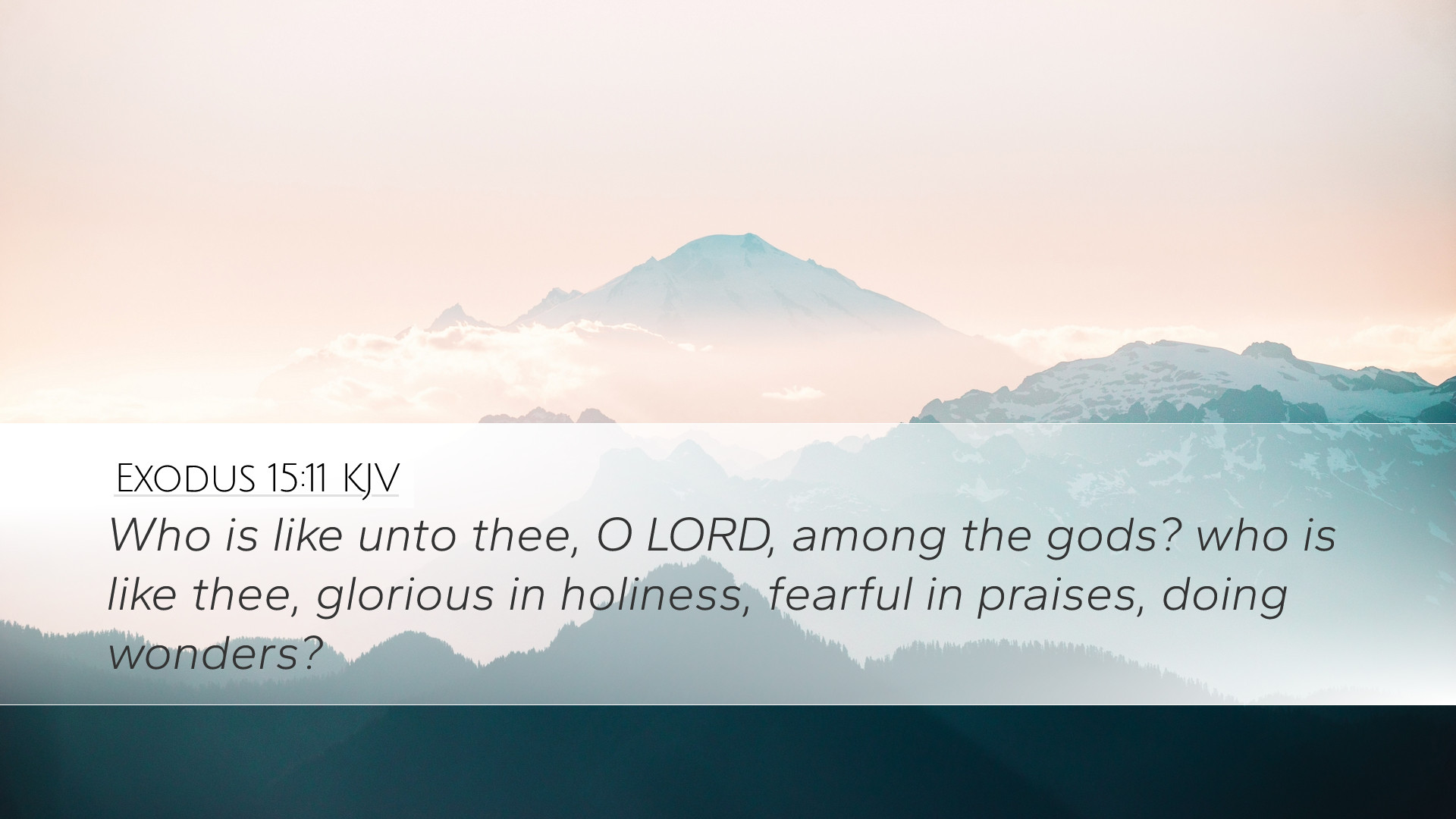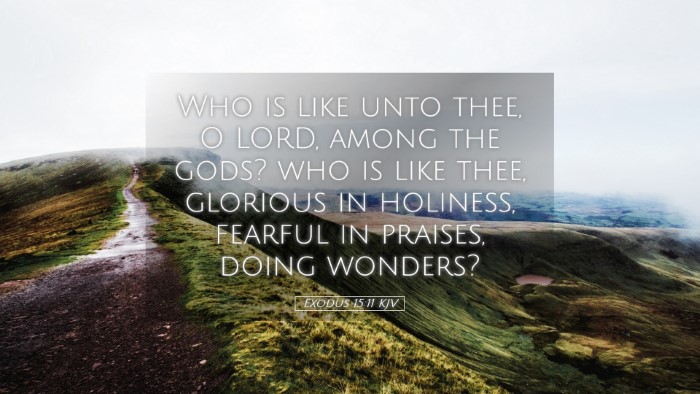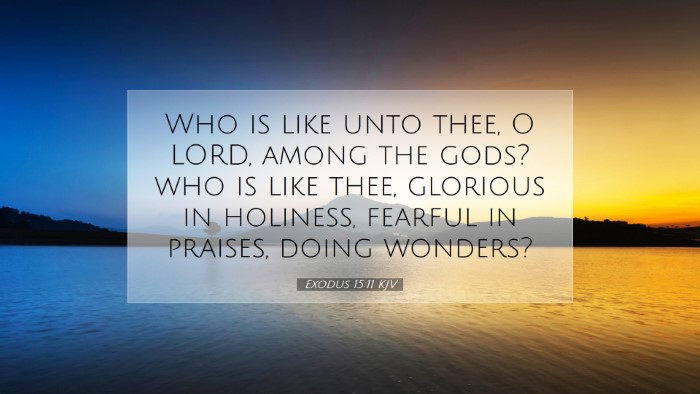Exodus 15:11 Commentary
Verse: "Who is like You, O LORD, among the gods? Who is like You, glorious in holiness, fearful in praises, doing wonders?"
Introduction
The verse from Exodus 15:11 appears in the Song of Moses, following the deliverance of Israel from Egypt. It is a spontaneous expression of worship and adoration that highlights the uniqueness of God. In this commentary, we will explore various insights from public domain commentaries, emphasizing theological significance and implications for worship leaders, students, and scholars.
Theological Significance
This verse can be understood in relation to God's attributes and His marvelous works throughout history. The rhetorical question posed serves to affirm God’s unrivaled greatness, setting Him apart from all other deities. Below are insights drawn from various commentators:
-
Matthew Henry:
Henry emphasizes the incomparable nature of God. He points out that this declaration arises from a recognition of God's power and holiness. The rhetorical question implies that there is no one else who can be compared to the Lord, making Him the sole object of worship and reverence.
-
Albert Barnes:
Barnes elaborates on the “gods” mentioned in the verse, noting that they represent idols or false deities that cannot stand in comparison to the true God. He underscores the glory of God’s holiness and the fear that arises from His presence, which produces awe and reverence among His people.
-
Adam Clarke:
Clarke focuses on the “wonders” that God performs, suggesting that they are manifestations of His grace and power in the lives of the Israelites. He illustrates how God’s actions, such as parting the Red Sea, call for a deep response of worship and gratitude.
Worship and Praise
This verse instructs the faithful on the proper response to God's mighty acts—worship. The content of the verse acts as a liturgical framework that guides the people of God in recognizing and reverencing His holiness.
-
Matthew Henry:
He notes that true worship must acknowledge the distinct holiness of God. The phrase “glorious in holiness” is not merely descriptive but prescriptive, calling believers to honor God's separateness from sin and His moral purity.
-
Albert Barnes:
Barnes suggests that the recognition of God’s holiness leads to a correct understanding of what it means to offer true praise. He argues that praising God is rooted in an awareness of His attributes, which shapes the way believers interact with Him and with one another.
-
Adam Clarke:
Clarke indicates that our praises should stem from an understanding of God's deeds—His providential care and miraculous deliverance. Acknowledgment of God's wonders fuels worship, leading to expressions of gratitude and reverence.
Application for Modern Believers
As modern-day believers reflect on Exodus 15:11, there are practical implications for their lives and ministries:
-
Call to Holiness:
Just as God is holy, His people are called to pursue holiness. This verse challenges both pastors and congregants to reflect on their own lives, ensuring they pursue a lifestyle that honors God’s distinctiveness.
-
Experiencing God’s Wonders:
Believers today should look for and testify to God's active presence in their lives. Recognizing the wonders He performs encourages a culture of gratitude and worship within the church community.
-
Reverence in Worship:
The reverent attitude expressed in this verse serves as a model for how worship is conducted. Pastors should lead their congregations in worship that acknowledges God's supremacy and grandeur, cultivating an atmosphere of awe.
Conclusion
Exodus 15:11 is a profound verse that encapsulates the essence of worshiping the one true God. The insights collected through the works of Matthew Henry, Albert Barnes, and Adam Clarke provide a rich theological foundation that can encourage believers to engage deeply with their faith. As they affirm God's uniqueness, holiness, and miraculous works, they are invited to partake in a vibrant life of worship that echoes through generations.


